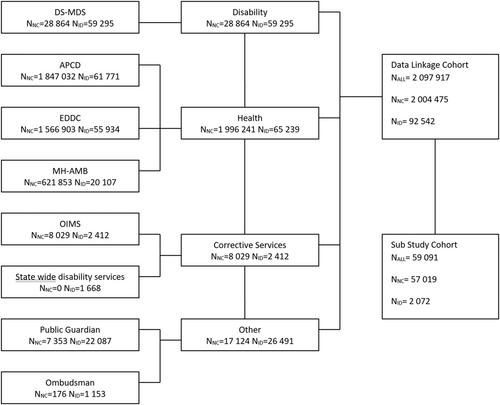The demographic and diagnostic profile of women with intellectual disability and mental health disorder in New South Wales and patterns of service use: A data linkage study
Abstract
Background
Current evidence indicates that intellectual disability and gender are both factors in differential usage of services. However, there are limited data about the demographic and service usage patterns of people with intellectual disability who use mental health services. This is particularly true in relation to women with intellectual disability with mental ill health. Interrogation of large-scale linked data sets can provide valuable insights into patterns of service usage among marginalised groups.
Method
A large collaborative data linkage project was assembled with the overarching aim of providing an epidemiological profile of the health (including mental health), health service use, mortality and other service system contacts of people with intellectual disability in New South Wales (NSW), Australia. These linked data were used to interrogate the demographic, diagnostic and service use profiles of women with intellectual disability who have sought mental health support in NSW.
Results
The linked data demonstrated important differences in patterns of diagnosis and service use for women with intellectual disability and mental health disorders, when compared to women without intellectual disability and men with and without intellectual disability, with mental health disorders. The diagnostic profile of women with intellectual disability reflected the gendered nature of diagnoses found in the wider population. Women with intellectual disability also experienced higher rates of diagnostic instability than other groups.
Conclusions
The intersection between gender, intellectual disability and mental health has an effect on diagnostic profile and patterns of service use for women with intellectual disability. These differences are important and may impact targeted service delivery and planning for women with intellectual disability who have sought mental health support.


 求助内容:
求助内容: 应助结果提醒方式:
应助结果提醒方式:


